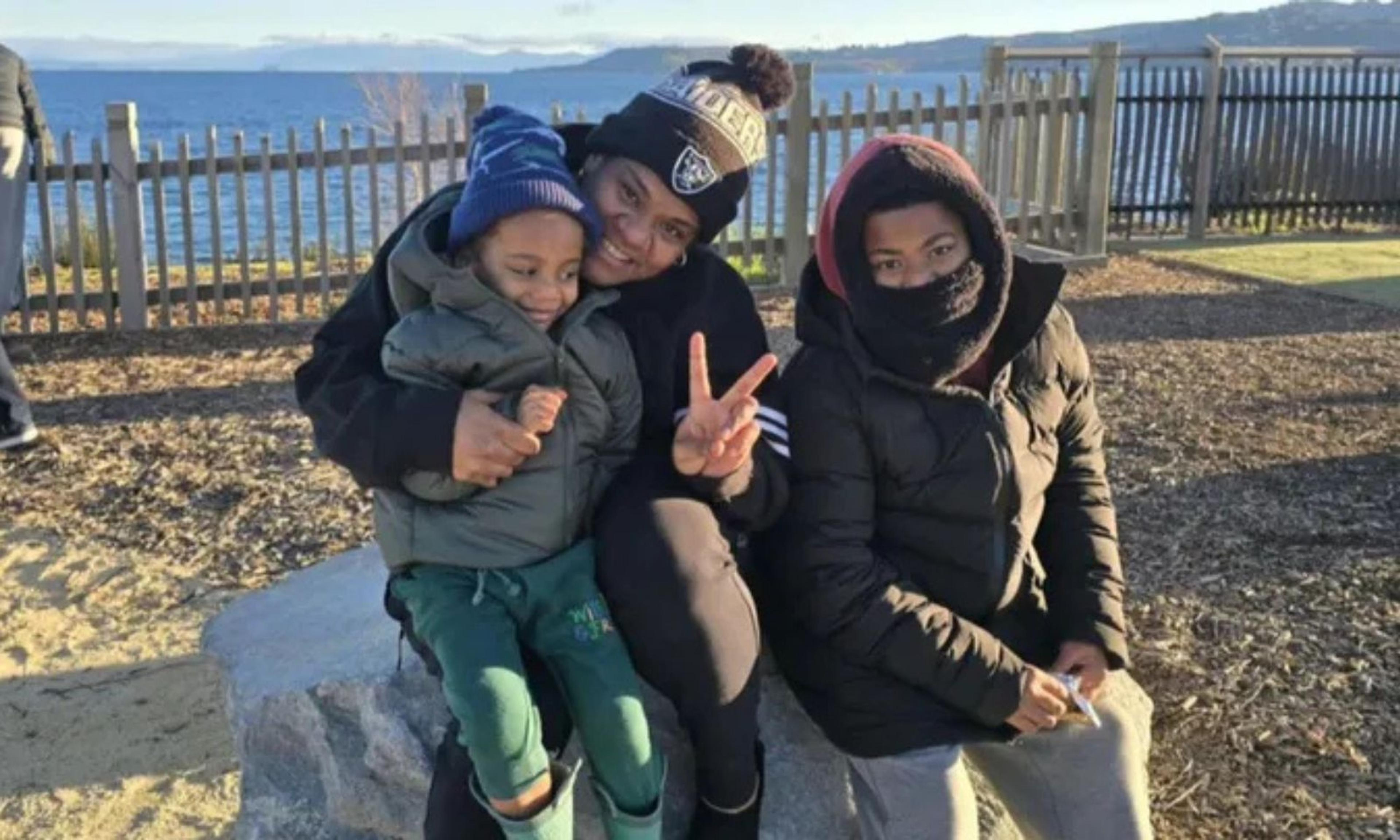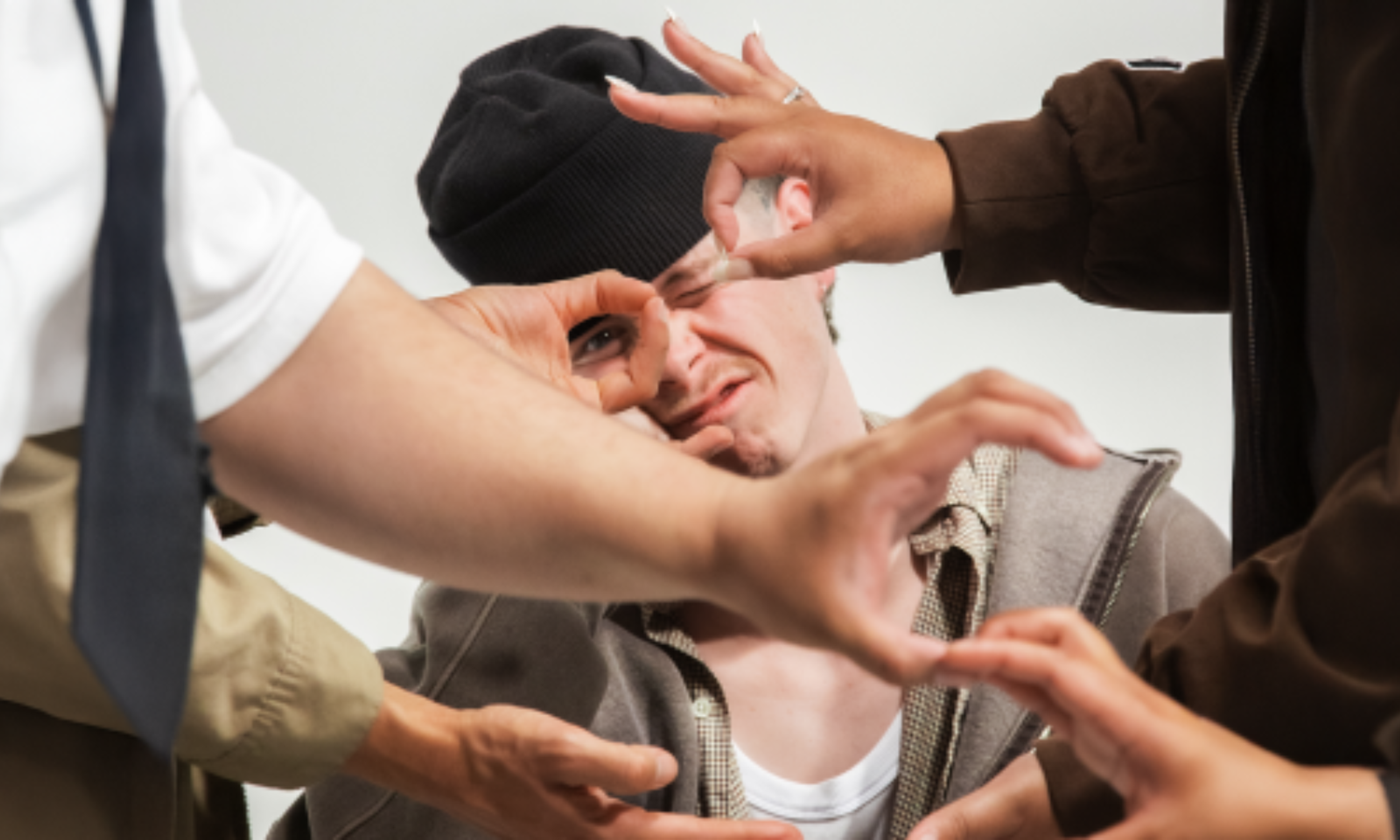

Tevita Faka’osi and the Kainga Pasifika Services logo.
Photo/PMN News/Aui’a Vaimaila Leatinu’u.
Healing starts at home: Kainga Pasifika model challenges violent norms
A Hawke’s Bay-based violence prevention programme continues to challenge violent norms mistaken for culture in Pacific families.


Ōtara 'locked out' in stoush over local govt board leadership roles



‘Bring Luisa home’: Family’s plea after Fijian mother’s death in Auckland apartment

Ōtara 'locked out' in stoush over local govt board leadership roles


A violence prevention programme in Hawke’s Bay is working to reshape how family harm is addressed within Pacific communities by embedding culture and faith at the heart of healing.
Kainga Pasifika Services Trust (KPST) in Flaxmere offers a 12-session programme designed for Pacific individuals and families, aiming to deepen their understanding of power, control, and healthy relationship dynamics. Tevita Faka’osi, the Manager and founder, says an important step in the right direction is first identifying what constitutes healthy and unhealthy relationships.
“I always say to our people, if you want to be healthy, eat healthy food. What are they? Find it out and eat it. That's how I look at family violence, it's all about what is healthy and what is unhealthy in a relationship,” he says.
The programme’s model, created by Faka’osi, integrates three core pillars: relationship, culture, and spirituality, with wellbeing or Mo’ui Kakato at its centre. Participants are introduced to this Pacific-centred framework right from the first session.
Faka’osi, who also designed the organisation’s logo, says the visual representation builds connection and trust.The logo features layered Pacific symbols, including a dove symbolising the connection to Dove’s Hawke’s Bay, where he worked before establishing KPST. It also includes a heart, and a coconut that representing peace, love, and rootedness.
Faka’osi’s daughter, Judy Faka’osi Siaki, works with her father as a family resilience worker and facilitator. Judy and her husband Moughan Sali-Siaki completed the programme before becoming facilitators themselves, and they say it transformed their marriage.
“What we took from the training with us is how to have a safe disagreement, and a safe time-out. We respect each other’s space,” she says. Moughan adds the training gave him new tools for equality in the home and how to better regulate his feelings.
She explains that her father developed the model after recognising that many previous family prevention programmes felt like mere “ticked boxes”. Judy says their model goes beyond mere engagement with families - it focuses on how the programme is delivered.
“For us as Pasifika, we have to incorporate the culture and spirituality because sometimes those values and beliefs in those areas seem like they condone or support violence. So it's breaking those things down and replacing it with values and beliefs that are healthy and serve the family more,” she says.
Faka’osi also says close examination of Pacific spirituality and culture is needed to challenge any unhealthy aspects as “you can’t challenge something you don’t know”.
“You need to know what is healthy in our culture, which is all about love and care, respect. So anything in our culture that promotes violence, abuse and so forth, that is unhealthy. For spiritual belief, there are certain things we translate and interpret in our own way to fit us,” he says.
“At the end of the day, God is telling us, ‘I am love’. If anyone says smacking and hitting is part of our culture, that is wrong. It's what we call abuse.”
For more information, please visit the Kainga Pasifika Services Trust website or phone 06 650 5106.